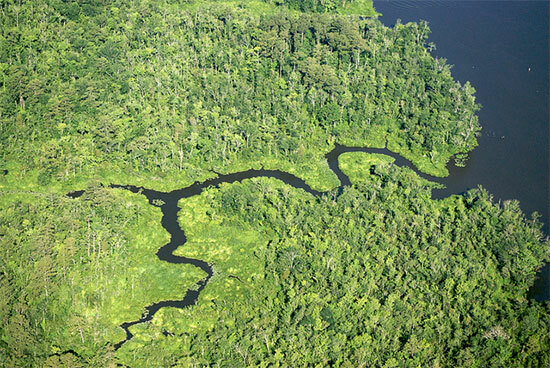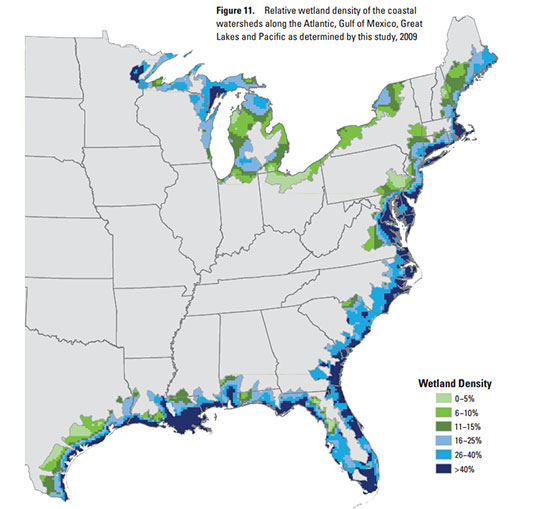Loss of coastal wetlands grows larger in United States
Development and other human activities are placing pressure on this critical habitat.
Coastal wetlands in the United States are disappearing faster than ever, as population growth and human development place pressure on this critical habitat.

According to a report from the U.S. Fish and Wildlife Service (USFWS) and the National Oceanic and Atmospheric Administration (NOAA), the nation lost almost 370,000 acres of coastal wetlands between 2004 and 2009, at a rate of 80,000 acres per year. This marks a 25 percent faster rate of loss than researchers measured between 1998 and 2004.

Coastal wetlands are among the most productive ecosystems on earth, and a loss of wetlands is also a loss of wildlife habitat, water quality control and shoreline protection. Wetlands provide spawning grounds, nurseries, shelter and food to fish, shellfish, birds and other animals; wetlands filter polluted runoff before it can enter our rivers and streams; and wetlands stabilize shorelines in the face of strong storms, sea level rise and climate change.
While some wetland losses can be offset by the creation of new wetlands elsewhere, this mitigation strategy is often ineffective along the coast. According to the report, this is because coastal ecosystems can be difficult to work in, storms and sea level rise can hamper reestablishment efforts, and human encroachment and land use can cut down on the number of available sites to restore. Indeed, most of the nation’s coastal wetland loss can be attributed to development and other human activities that increase impervious surface area, affect water quality and fragment or destroy natural habitats.
Learn more about the status and trends of wetlands in the coastal watersheds of the conterminous United States.

Comments
There are no comments.
Thank you!
Your comment has been received. Before it can be published, the comment will be reviewed by our team to ensure it adheres with our rules of engagement.
Back to recent stories